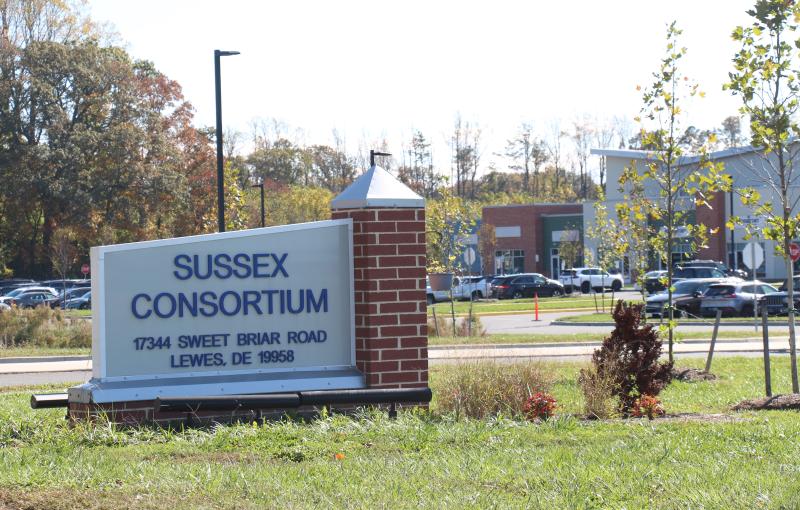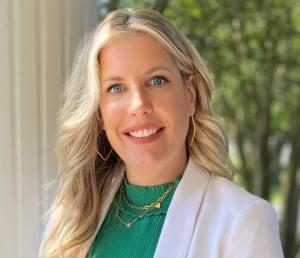Early learning takes big leaps in Cape district
Now licensed through the Delaware Office of Child Care, Little Vikings at Sussex Consortium is eligible to receive grant funds for programming and scholarships for employees interested in advancing their careers.
Cape Supervisor of Early Learning Audrey Dempsey said the path to licensing was a year-long process that was at times difficult due to varying regulations. By attaining the certification, she said, Cape meets state requirements in Title 14, Chapter 30A mandating licensure for state school districts with pre-K programs.
The process allowed district leaders to focus on having the safest and healthiest regulations for its smallest students, Dempsey said.
“It aligned with many of our goals,” Dempsey said. “With the goal of having high-quality programming and professionals, all of our staff ensured they received certifications that demonstrated not only that they were credentialed teachers and paraprofessionals, but also that they had strong knowledge of teaching our earliest learners by gaining additional certifications.”
Through the process, Dempsey said classrooms were assessed to model a rich learning environment that supported a deep level of instruction. Children are asked to have yearly physicals versus every two years, and staff are also encouraged to undergo physicals.
“Our goal as a district is always to provide the safest environment for students,” she said. “All early learning staff became certified in CPR/first-aid/AED for young children along with taking additional health and safety courses.”
Staff underwent another level of fingerprinting, she said, and the building was checked for radon and lead.
Meeting licensing demands in an isolated pre-K classroom within a typical elementary school would be difficult, Dempsey said, because licensing requires all staff that would come into contact with any pre-K student to undergo all requirements.
Most importantly, she said, having one pre-K would not fit into the district’s larger vision due to the state funding model and space, she said, citing as an example that the state provides funding for a teacher for every 8.4 students identified with basic special needs.
“Then if you wish to have an inclusion model where you add an equal number of peer students that are underfunded, you now have almost 17 3- or 4-year-old students per teacher, without funding for a paraprofessional or related service specialists,” she said. “If any students identified to receive special education move into the district, then the class shortly becomes full.”
Dempsey said she is thankful that the governor and legislators recently lowered the funding model, which used to be over 12 students per teacher.
“Cape is also focused on early learning programming that is more than adding a grade level to a building,” she said.
Becoming licensed also allows the district to take advantage of grant opportunities to serve more students, and for staff to earn scholarships to advance their degrees in early learning, Dempsey said.
“We are particularly proud to be awarded a state-funded grant of $72,500 yearly for the next three years totaling $217,500 to serve unserved and underserved children,” she said. “This also provided Cape with the opportunity to receive a High Quality grant of $55,000 to focus on staff retention and development.”
The grant allows staff to provide more support to families, Dempsey said.
“We visit family homes and set goals with both the family and the student,” she said. “We work to provide not only health services linked to immunizations, but focus on dental, vision and mental health.”
Grant funding is critical, Dempsey said, because in the current state funding model, the district is only provided funding for students identified with a disability.
“Our goal at Cape is to provide the most inclusive model possible, and funds from the grant opportunity make it even more essential,” she said.
Children with identified disabilities receive free special education services through the Little Vikings program, which also enrolls typically developing peers, a requirement under the Individuals with Disabilities Act.
Currently, she said 227 students are enrolled in Little Vikings. Of those students, 147 have identified disabilities, of which 10 spots are state-funded, and 80 are typical peers.
Little Vikings traditionally serves students ages 3 and 4, Dempsey said; however, identifications of autism, deaf, hard of hearing, visually impaired and deaf-blind are Delaware birth mandates the district is required to serve, so at times, the school has served children under age 2.
Additionally, she said, four more peer students will be enrolled this week, and after December, Little Vikings begins to enroll all students from birth to intervention who turn 3.
Cape hired Dempsey in the summer of 2022 in response to the state’s creation of a strategic plan to prioritize its early childhood system to support the growth and development of children from birth to age 5.
Since her arrival, Dempsey said, her ultimate goal was to reach more children who may not traditionally be provided with high-quality programming to prepare them for kindergarten.
“Our goal is simply not to provide an extension of another grade level, but instead work to provide a model where we focus on families and our community as a whole to support our youngest students,” she said.
In addition to servicing students in the Little Vikings program, she said, district leaders collaborate with childcares in providing services for early intervention and works with local libraries to provide monthly kindergarten readiness sessions.
Licensing was critical to this process, Dempsey said, because it allowed the district to lay a strong foundation for its larger work of raising inclusion rates, serving children through itinerant services, expanding equitable services and creating a unique early learning program.





















































